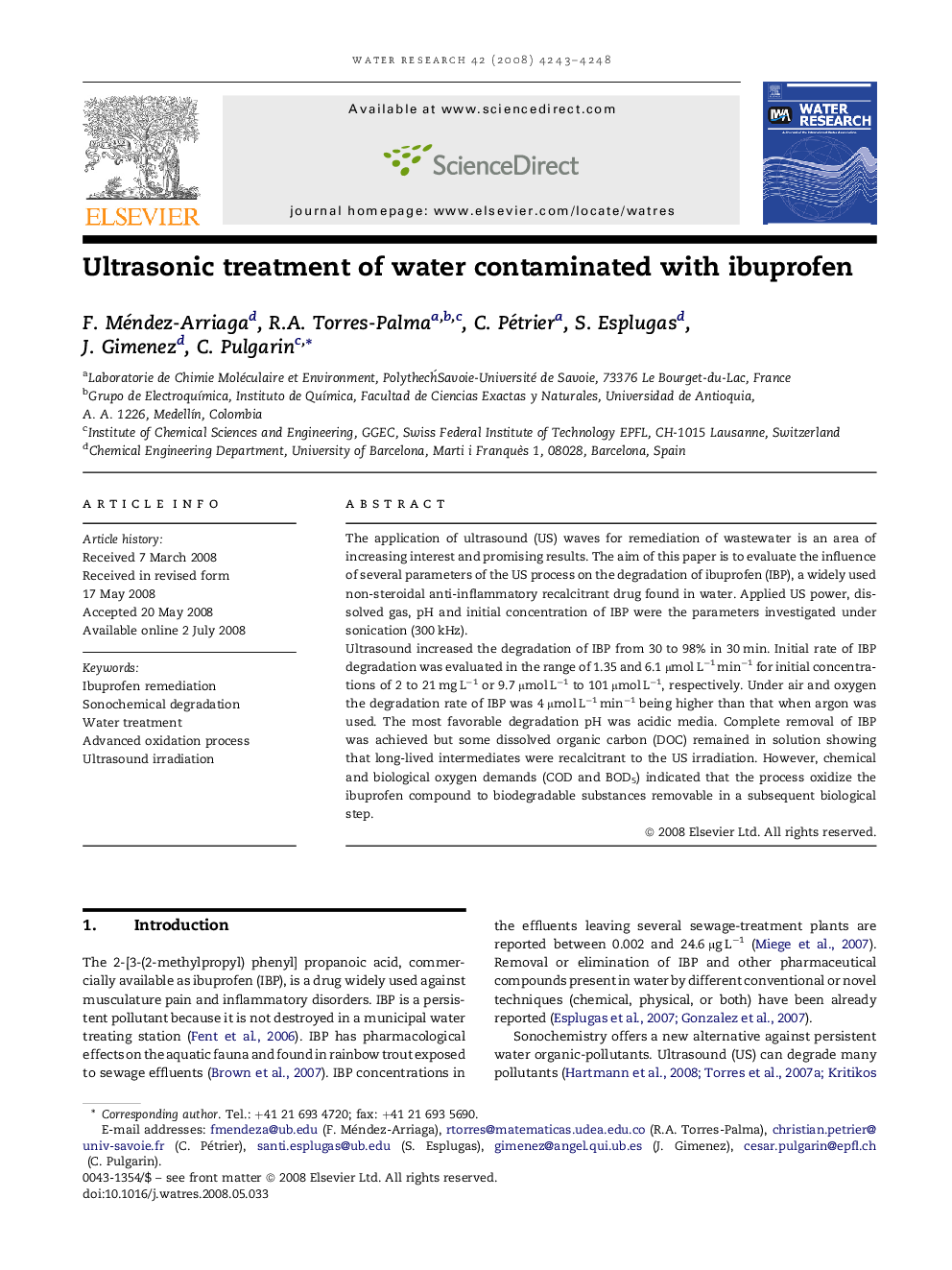| Article ID | Journal | Published Year | Pages | File Type |
|---|---|---|---|---|
| 4485792 | Water Research | 2008 | 6 Pages |
The application of ultrasound (US) waves for remediation of wastewater is an area of increasing interest and promising results. The aim of this paper is to evaluate the influence of several parameters of the US process on the degradation of ibuprofen (IBP), a widely used non-steroidal anti-inflammatory recalcitrant drug found in water. Applied US power, dissolved gas, pH and initial concentration of IBP were the parameters investigated under sonication (300 kHz).Ultrasound increased the degradation of IBP from 30 to 98% in 30 min. Initial rate of IBP degradation was evaluated in the range of 1.35 and 6.1 μmol L−1 min−1 for initial concentrations of 2 to 21 mg L−1 or 9.7 μmol L−1 to 101 μmol L−1, respectively. Under air and oxygen the degradation rate of IBP was 4 μmol L−1 min−1 being higher than that when argon was used. The most favorable degradation pH was acidic media. Complete removal of IBP was achieved but some dissolved organic carbon (DOC) remained in solution showing that long-lived intermediates were recalcitrant to the US irradiation. However, chemical and biological oxygen demands (COD and BOD5) indicated that the process oxidize the ibuprofen compound to biodegradable substances removable in a subsequent biological step.
